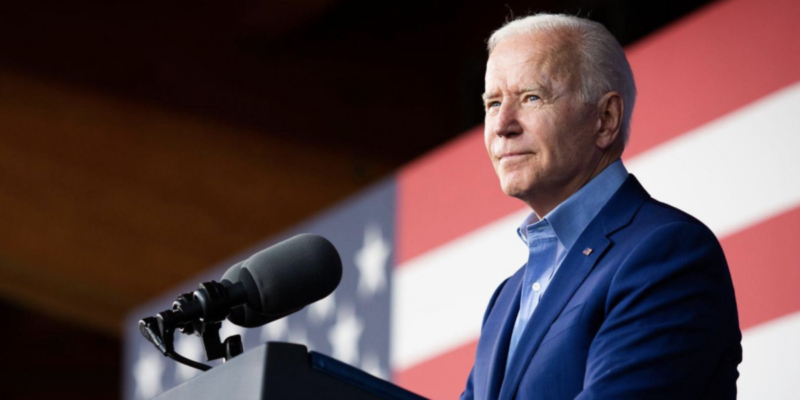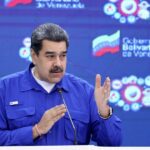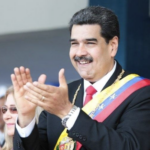The Biden administration has extended the special license that allows Chevron Corp. and four oil service companies— Halliburton, Schlumberger Limited, Baker Hughes, and Weatherford International— to remain in Venezuela until December 1, 2022 stated the Treasury Department on Friday.
The license holds the same limitations imposed by former President Donald Trump over the past few years, which allows American oil production companies to only perform limited maintenance, and not produce and export any oil.
Last Tuesday, the White House announced plans to ease some economic sanctions on Venezuela at the request of the Venezuelan Opposition’s Unitary Platform and as a gesture to encourage Maduro to return to the Mexico talks with the Opposition.
At this point, the only change is that under a “narrow” license, Chevron Corp. will be allowed to begin previously-prohibited talks with state-owned oil company PDVSA about a potential restart of production that had ceased under U.S. sanctions, reported The Washington Post. The license continues to prevent the company from drilling or exporting any Venezuelan oil, and U.S government officials said that any sanctions relief can be reversed if the Maduro government does not cooperate.
Under President Trump, Chevron and others were allowed to export and trade Venezuelan crude primarily to repay debt, which today stands at around $3 billion as reported by Bloomberg. The company’s license was later changed to prohibit the trading of Venezuelan crude. However, some experts argue that these measures are now ineffective due to the support that Venezuela receives from countries like Iran and Russia.
During a recent panel discussion hosted by Florida International University’s Jack D. Gordon's Institute on Public Policy, key foreign policy exports spoke about U.S. sanctions on Venezuela.
"There have been important unintended consequences of the U.S. sanctions policy in Venezuela that I think should be considered as a new approach to devise a potentially new sanctions regime and I think it’s important because a lot of people are missing some of the minutiae," said David Voght of IPD Latin America. "So, what are these consequences? I think first and probably most important to me is that sanctions policy has pushed Venezuelan crude exports to China."
Voght continued, "In my opinion, sanctions have not really been used as effectively as they could be in terms of tools to affect change. There has been no realistic path towards delisting under the previous US administration and certainly it’s the view of some key players today that removing sanctions is a sign of weakness. This position has essentially backed Maduro into a corner, preventing rather than encouraging any change in behavior."
Another leading Western Hemisphere export, Brian Fonseca, director of the Institute, also questioned the economic sanctions regime, and pointed to how Maduro has been able to "bypass U.S. sanctions" with the help of China, Russia, Iran, and Turkey.
“Of course to varying degrees I think these countries have really helped Maduro bypass U.S. sanctions to keep the Venezuelan economy muddling through and provide technical assistance to stave off internal and external threats. Last year I testified before the US Congress, and I argued that the considerations that were binding China, Russia, Iran, Turkey, and Venezuela together today were far less ideological and instead these countries are tied together largely by common authoritarian political structures and economic and political opportunism," said Fonseca. “Furthermore, I think these countries all share this antagonistic relationship with the United States which also sort of brings them to this same space..."
Eduardo Gamarra, who works alongside Fonseca at FIU, recently expressed to The Floridian his concerns over the long-standing sanctions imposed on Venezuela, the de-westernization of the country and the criminal activities of the Maduro regime that have all-but made Venezuela an outlaw state.
Venezuela has become what we might call “de-westernized” through an increasing influence by anti-democratic and certainly anti-liberal democratic countries—by countries that are outrightly anti-American, and of course a very close relationship even with Vladimir Putin. And these have converged to create what some analysts are calling alternative economies," said Gamarra. " These alternate economies have very opaque trading partner practices, unclear money flows, a complex web of shell companies, money laundering schemes around the globe, and clearly Nicolás Maduro, the president of Venezuela, skirts all international sanctions and imposes anti-democratic policies. And of course, this tightens his grip on Venezuela in a dictatorial manner."
U.S. lawmakers like Florida Senators Rick Scott and Marco Rubio, and New Jersey Senator Bob Menendez, have taken a hardline approach to Venezuela's criminal regime and the help they continue to receive from Communist China and President Vladimir Putin's Russian government.
Sen. Menendez recently told The Floridian that stands by his commitment of pushing back against Russian influence and support that continues "enriching a brutal dictatorship like Venezuela.”
Sen. Rick Scott also recently told The Floridian, that “Maduro is actively withholding aid, food, medicine, including the COVID-19 vaccine, and punishing anyone who dares speak up against his dictatorship. Maduro’s actions are outright killing and shortening the lives of his citizens.”
Publisher Javier Manjarres contributed to this story.






